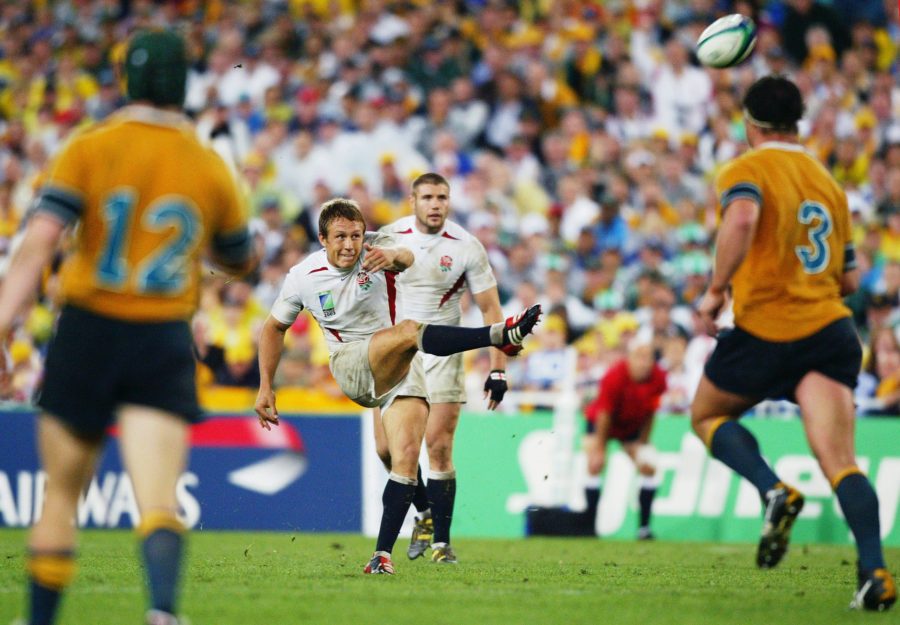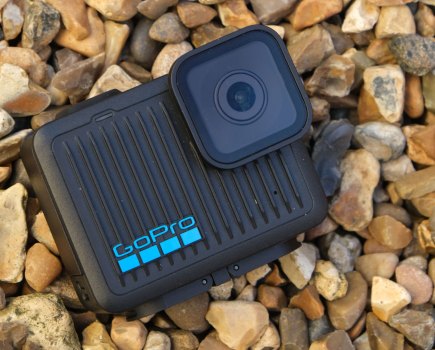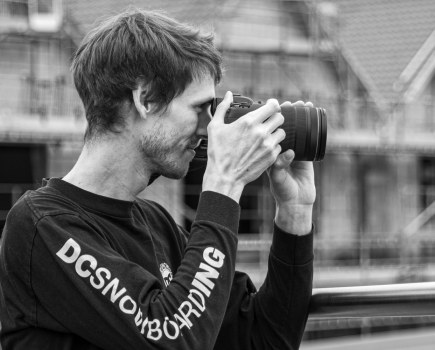The Rugby World Cup starts very soon – what are you particularly excited about, or thinking about?
It should be great, and as Japan has never hosted a Rugby World Cup before, quite a challenge for us photographers. But I am really looking forward to it. I hope it stays dry and there aren’t any problems from the typhoons!
As an accredited photographer, are you pretty much assured of getting a good spot at the matches or is it a case of first come first served?
We get allocated good spots as we are official photographers and also work for Getty Images, a big agency, so we are high up in the pecking order. While there will be a lot of local photographers out there there, the cost involved in getting to and around Japan has probably put off a lot of UK sports freelancers.
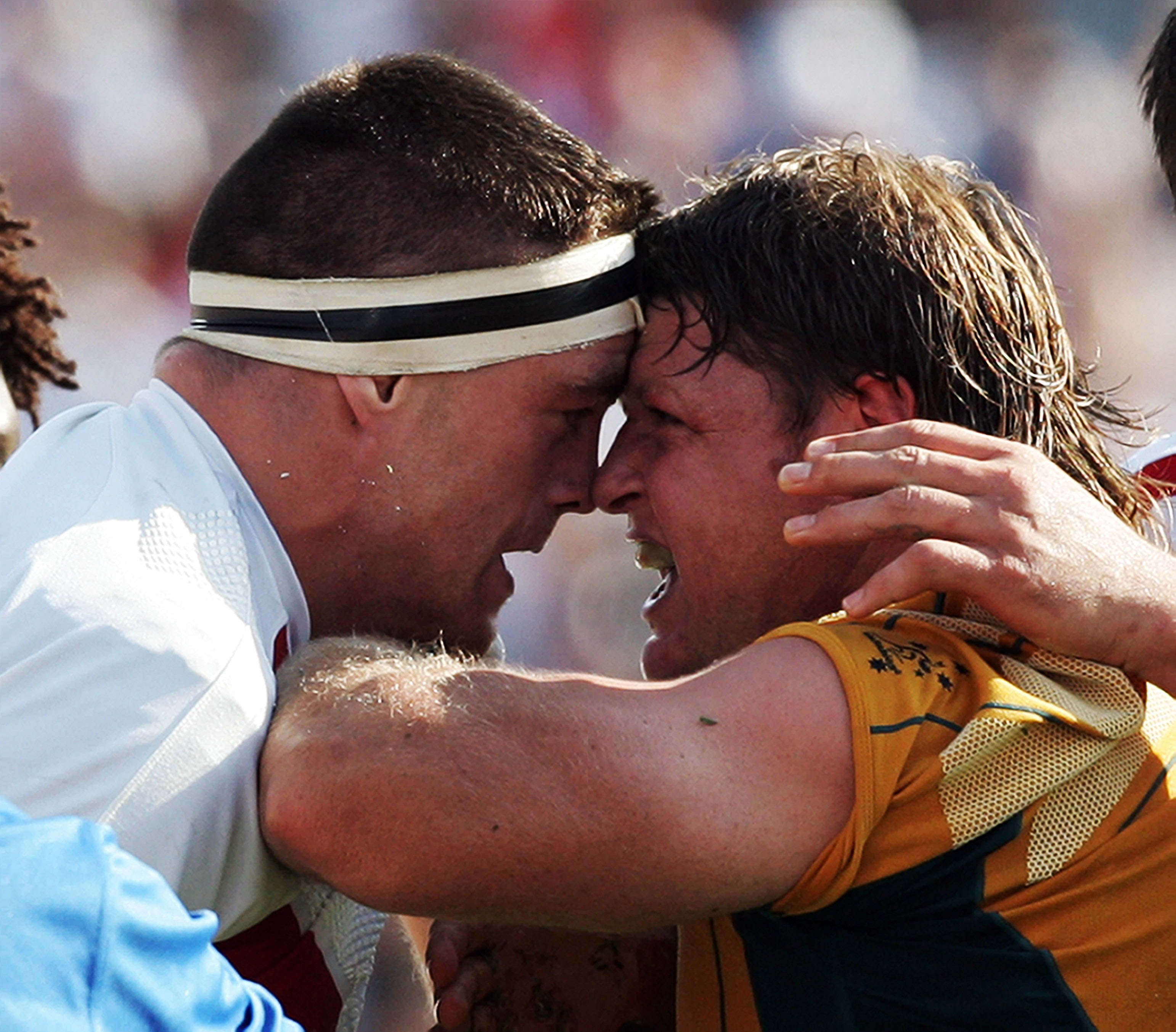
Matt Dunning of Australia clashes with Andrew Sheridan of England during the Quarter Final of the Rugby World Cup 2007 between Australia and England. (Photo by Dave Rogers/Getty Images)
It’s not just me though. There are about 14 photographers going out from Getty Images, so we have each match well covered, and there will people doing editorial/feature photography too. Rugby is not like football, as there is not a single goal-mouth to score from, and players can score anywhere along a 90m wide line. So even if you get a ‘good’ spot, you can miss a point, which is why we have more than one photographer covering a match. We are also able to move around the ground, again because of our credentials, rather than being stuck to one spot.
What cameras and lenses will you be taking?
I will take three Canon EOS 1X Mark II bodies and my standard lens for matches is the Canon 400mm f/2.8. I will also take a 70-200mm f/2.8 lens for the try line, but it varies. I can go as long as 600mm, but as I will be doing a lot of travelling on trains and planes over there, this lens can get unwieldy. I am quite happy with DSLRs and have no plans to change to mirrorless cameras.
What tech do you use to transfer images back?
We all have our own high-speed cable set-up for transmitting images back, straight to editors in Tokyo and London, depending on the time zone.
Do you get the chance to take any shots of the teams before and after the match?
Yes, I also do feature and promotional images. I’ve just come back from Italy, where the England side has been training. We have a great relationship with the team, though understandably, they don’t always want us to know everything that is going on in the training camp (injuries, for example).
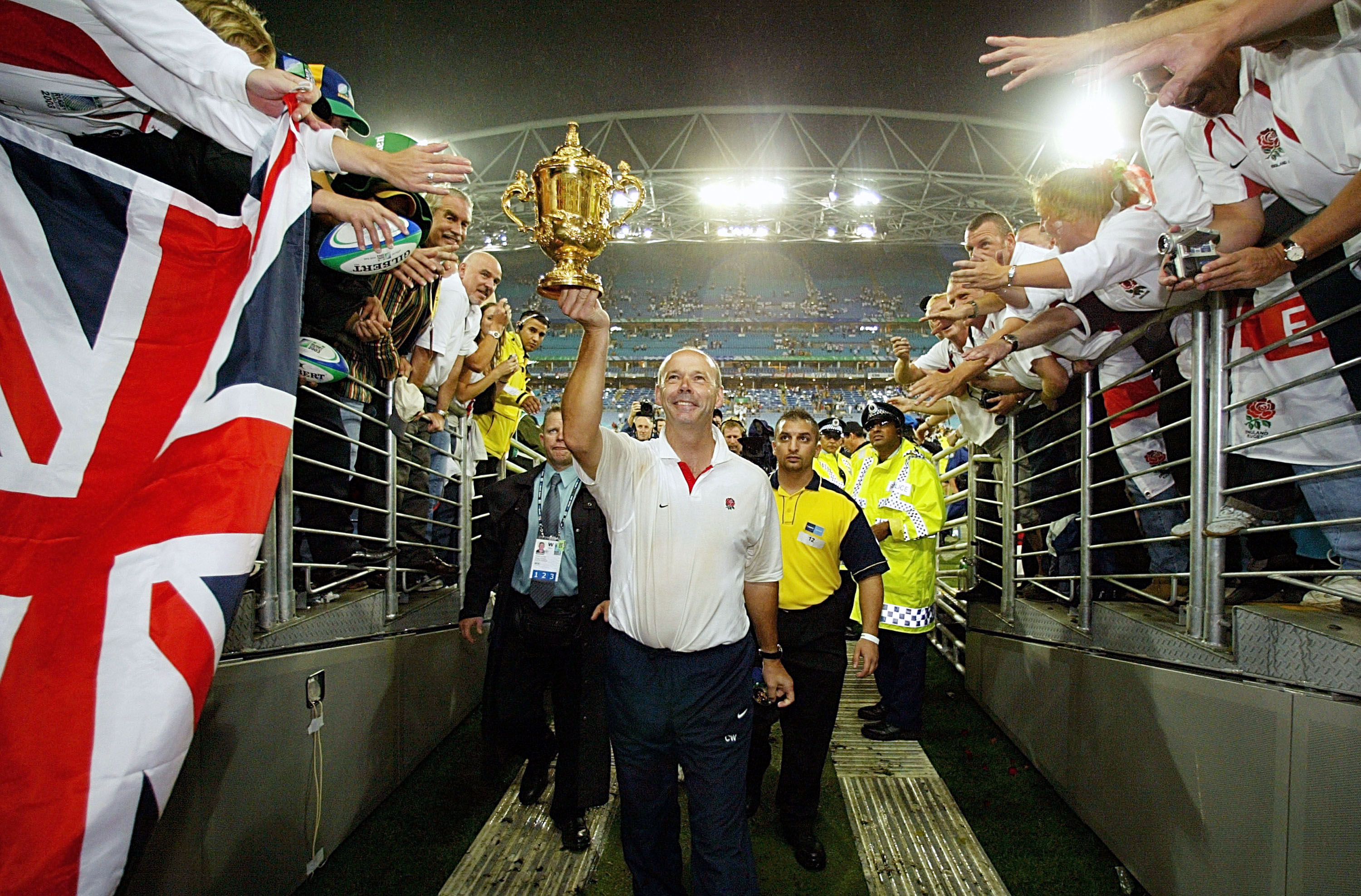
The victorious Clive Woodward, head coach of England holds aloft the Webb Ellis cup as he leaves the field after England’s victory in the Rugby World Cup Final match between Australia and England, November 22, 2003 in Sydney, Australia. (Photo by Dave Rogers/Getty Images)
Are you also a rugby fan, and does this help when it comes to taking good photos?
I started out as a football fan, but became hooked on rugby when I went on tour with the British Lions in 1980. It was one big happy band and I fell in love with it all. It’s hard to believe I have been shooting rugby professionally for over 40 years!
How do you make your shots stand out?
Experience and persistence teach you a lot. Things do go wrong but you try again. I still get nervous before a big occasion, as you only have a split second to nail the shot. Sometimes I can also try more ‘creative’ images (eg using motion blur) but a rugby match only lasts 80 minutes. The picture editor won’t thank you if you missed a try as you were messing about trying to be arty at 1/15 of a second!
Is it physically and mentally tiring to have to keep concentrating so much?
Yes. But every match is different and that is the thrill of it. I never get bored.
What pictures are you the proudest of and why?
It has to be the images of Jonny Wilkinson from England’s triumphant World Cup win in 2003 (below). It was a magic moment in English sport. Even better, I was able to go into the changing room afterwards and join in the celebrations for two hours. In fact Jonny and I became good friends and I got to know his family well.
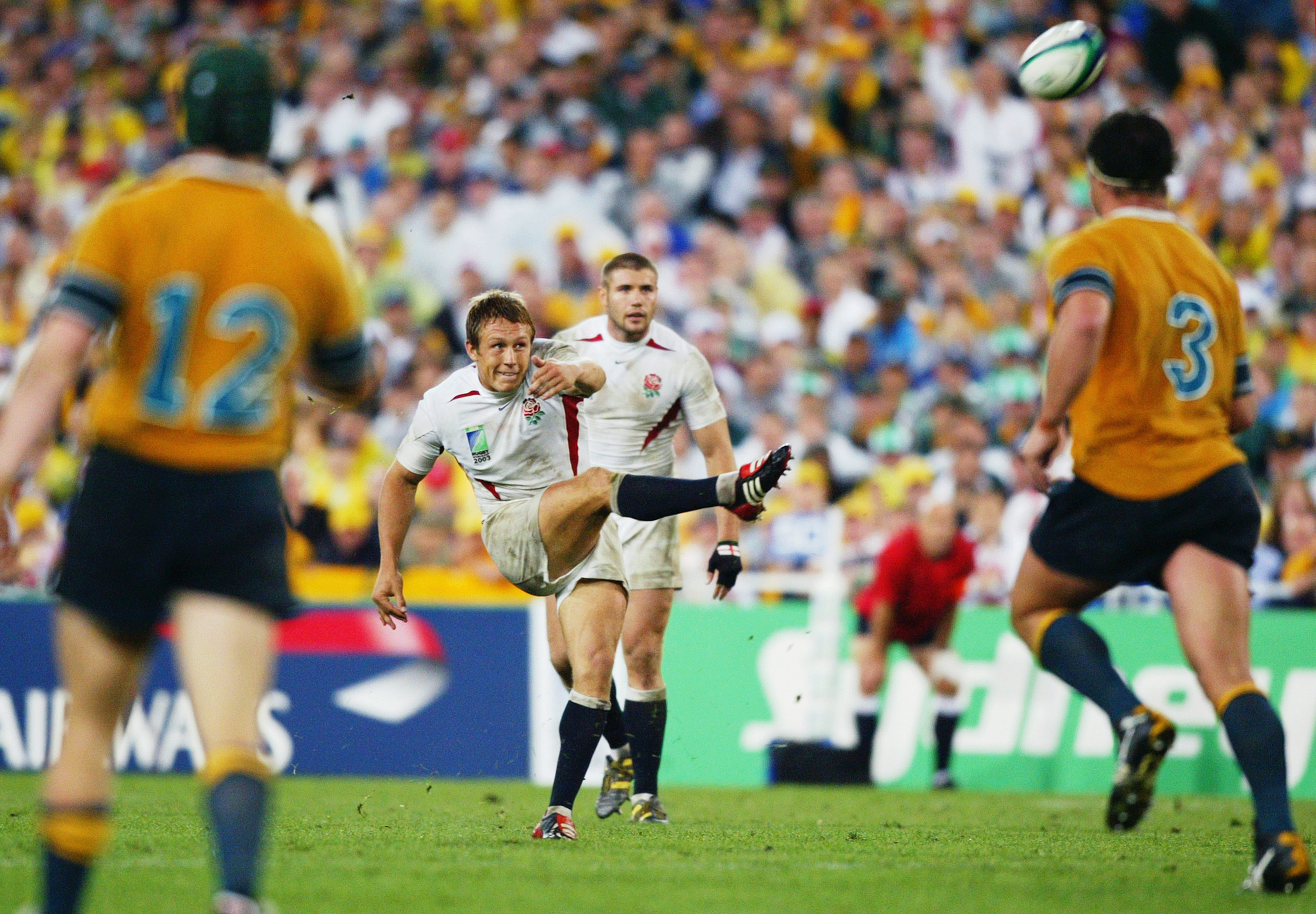
Jonny Wilkinson kicks the winning drop goal to give England victory in extra time during the Rugby World Cup Final between Australia and England held on November 22, 2003 (Photo by Dave Rogers/Getty Images)
How do you cope with missing a great shot?
I do still beat myself up. It’s part of your attitude as a professional. You want to do your best and you know when you have done a good job, and when you haven’t. Luck plays a part, sure, but you also make your own luck as a sports photographer. I get a sleepless night when I miss a shot but there is always the next game to worry about – this is the beauty of my job. You learn from it and get over it.
Times are hard for up-and-coming sports photographers. Any tips?
Yes, but you still can do it. Local newspapers, where I learned my trade, are closing, but you can now get your shots online and shared internationally, which was never the case when I started out. If you want to shoot rugby, go and shoot your local rugby club. Have a go, start off small and don’t give up. We have some great young sports photographers here at Getty Images, for example. It’s a great life. I reckon being a sports photographer, up close to the action at major events, is the next-best thing to being a top sportsperson yourself.
See more of Dave’s work here.

